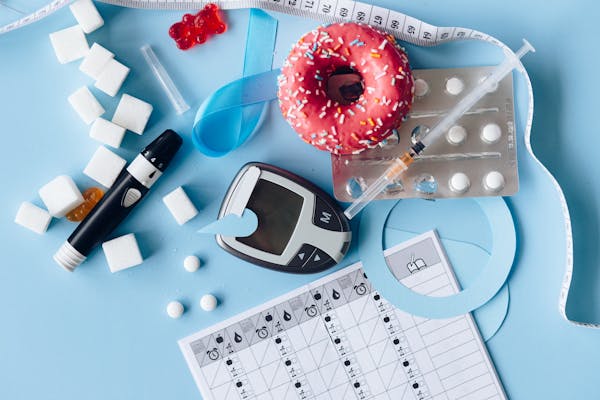Do small, frequent meals really tame your appetite?
[ad_1]

The suggestions is given so usually which is it’s grow to be gospel: If you want to manage your appetite, eat smaller, frequent foods. The idea is that if you enable way too lots of hours to elapse concerning breakfast and lunch, or lunch and meal, you will come to be so ravenously hungry that you will be at ideal unpleasant and at worst rendered not able to make foodstuff selections that are in your greatest interest.
We make a lot of consuming alternatives about the class of a day: What to consume, why to take in, in which to try to eat, how to try to eat and finally when to take in. When you’re hoping to take in healthfully, it’s frequent to look for for that missing element that may well assist you be even much healthier. Exceptional meal frequency is one particular Holy Grail. But do you definitely need to have to try to eat 5-to-8 times for each working day? Investigation suggests not.

Let us glimpse at the science
Let us confront it: body weight management is a most important purpose that men and women assume they need to consume small, frequent foods. Nonetheless, while observational scientific tests have seen that amplified food frequency is affiliated with reduced probability of staying “overweight,” affiliation does not show trigger-and-result. In truth, randomized, controlled-feeding scientific tests — some of which precisely measured urge for food — explain to a distinctive story. In a couple scientific tests, lesser, a lot more regular foods helped curb appetite. But typically, the reverse was accurate.
The “Meals and Grazing” research at Fred Hutchinson Cancer Research Middle in Seattle assigned healthy males and gals to take in either 3 meals a day or 8 meals a working day for three months, then switch. Foodstuff, energy and macronutrients (carbohydrates, protein and fats) had been the very same on the two diets. In an optional urge for food testing session, 12 participants ate breakfast possibly as one significant meal or as two more compact foods spaced about 90 minutes aside. Individuals who ate the two smaller sized foods skilled much better hunger and desire to consume more than a 4-hour period of time than people who ate just one greater meal.

Hunger vs. cravings
We usually explain hunger as the desire or urge to consume, which incorporates our perceived degree of starvation. Running urge for food is dependent on additional than just meal spacing. Food measurement and composition are essential factors. In other terms, what you consume probably would make more of a distinction than how often you consume. If you are producing healthful meals alternatives, eating to satisfy your body’s electricity requirements, and your hunger hardly ever flares out of command, then worrying about how typically you try to eat is splitting hairs.
Cravings are linked to hunger, in that they include a want to try to eat, but cravings can transpire even when you’re not hungry. Mainly because cravings can truly feel more powerful when you are also hungry, one supposed reward of managing hunger and hunger is reduction in cravings.

What’s your frequency?
Total, exploration scientific tests have discovered that raising meal frequency outside of a few foods for each working day has tiny-to-no outcome on urge for food, even though having less than 3 meals for every working day tends to improve hunger. What does this imply for you? Instead than seeking outside the house for answers to how normally you should really consume, glance inwards.
Your great meal frequency will give you steady energy through the working day. It will also enable you get hungry adequate in between foods that you come to feel completely ready to eat a nourishing meal but not so hungry that you lunge for what ever food you can get your hands on. Talk to on your own these thoughts:
- Do I sense pleased at the close of a meal?
- How shortly do I get hungry once again just after a food?
- How solid is my hunger between meals?
- Do I even really feel real actual physical hunger?

What your starvation may be telling you
If you sense starving amongst foods, that is a signal that you need to consume a lot more at your foods (maybe just far more protein), or that you need to have to consume additional generally. If you feel the need to have to eat oddly quickly immediately after a food, but don’t genuinely truly feel hungry, it might be that you are not taking in the mixture of foods that very best satisfies your overall body, so try experimenting. If you are inclined to be distracted when you take in, apply eating mindfully so you get the psychological pleasure of completely tasting your foods. Appetite is in the head as effectively as the human body.
If you know that you rarely expertise accurate starvation, or sense overfull soon after you eat, you may perhaps need to take in fewer at meals, or try to eat a lot less normally. Small, regular foods — specially if they morph into a grazing having sample — can induce you to miss out on out on the hunger and fullness cues that can serve as an inside barometer of how significantly and when to take in. As well as, when you’re feeding on all the time, it’s quick to eat mindlessly and have no plan what or how considerably you are definitely having in the class of the day.
Eventually, if you by no means let oneself to get hungry, you may possibly neglect what starvation feels like. Hunger is a standard physiological sign that tells us it is time to refuel, and reasonable starvation is almost nothing to dread. In simple fact, it improves our enjoyment of the meal to arrive!
Carrie Dennett is a Pacific Northwest-primarily based registered dietitian nutritionist, freelance writer, intuitive feeding on counselor, creator, and speaker. Her superpowers involve busting nourishment myths and empowering women to feel much better in their bodies and make foodstuff options that aid pleasure, nutrition and well being.
 Print This Put up
Print This Put up
[ad_2]
Resource backlink




